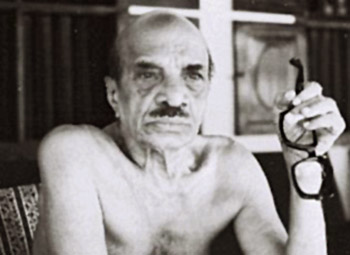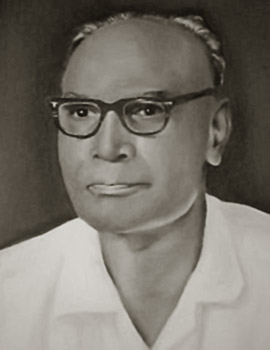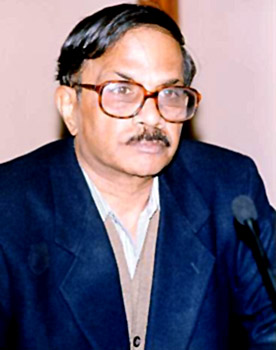Progressive writers in Malayalam Literature emerged in the field of Malayali literary works sometime in the 1930`s. The progressives were so-called because they had started off as socialist realists. Most of them gradually moved beyond all these so-called "isms" even as Kerala was becoming the first state in the world to bring a communist government to power through the electoral process. One of the most famous works of the period, Guptan Nair`s `Isamgalkkapuram,` called for artistic freedom reaching beyond "isms" and agendas. Kuttikrishna Marar`s critical essays, eventually collected in 1965 as a single volume, Kala Jeevitham Thanne, took issue with both the socialist realists and the proponents of "art for art`s sake," pointing at the unique path an Indian writer could take independent of Western prescriptions. Again, it may be noted that the aesthetic independence of leftist writers might have been a result of the strange variations of Marxism itself as it won followers from upper and lower castes alike, forming, in essence, a regionalist coalition against the mainstream Congress Party and its bourgeois, sectarian allies.
In 1956, the three Malayalam-speaking regions, Malabar, Cochin, and Travancore, were united to form the state of Kerala, bringing an environment of political and linguistic unity to the culture of Malayalam-speaking people. Many members of the new communist cabinet were literary personalities; the critic and novelist Joseph Muntasseri himself became the minister of education and the chief minister was E.M.S. Namboothiripad, a prolific writer on history and Marxist aesthetics. Vaikom Muhammad Basheer, Thakazhi Sivasankara Pillai, Kesava Dev, S. K. Pottekkat, Lalithambika Antharjanam, Uroob and Cherukad are prominent novelists of this generation. The novelist who typifies the generation of the progressive is Thakazhi Sivasankara Pillai. He started out as a leftist and matured into a true Kerala original. Some of the most prominent among the Progressive Writers are discussed below.
Thakazhi Sivasankara Pillai
The best-known Malayalam writer, both nationally and internationally, is Thakazhi Sivasankara Pillai (1914). His fame is partly on account of the United Nations Educational, Scientific, and Cultural Organization (UNESCO) translation of his masterpiece Chemmeen (The Prawn) and its classic film adaptation made in 1966 by Ramu Kariat. Though Thakazhi is often considered a hardcore socialist-realist, his major works, like Chemmeen and Enippadikal, are intense portrayals of love and tragedy, and they have little to do with socialism or realism. Very few Indian novelists have explored the nature of passion the way Thakazhi has in Chemmeen, in which the social and economic exploitation is mostly a subtext. Taken as a whole, his voluminous works present a proletarian position. Thakazhi Sivansankara Pillai also captured the living language of the underclass and traced the rise and fall of its hopes in modern India.
In the novel Thottiyude Makan (Scavenger`s Son, 1947), we witness the story of three generations of `thottis`, cleaners of night soil. The first two generations struggle to attain individuality; they suffer and die unfulfilled, oppressed and ostracized, but their struggles enable Mohanan, the third-generation thotti, to assert his individual dignity and lead his fellow untouchables to rise against oppression and prejudice. The landscapes of Thakazhi`s novels are peopled with thousands of characters who represent a cross-section of Kerala: fisherfolk, toddy tappers, clerks, small farmers, landlords. He also tries to capture the peculiar social and mythical codes that continue to sustain their lives, making his works very much a part of the Indian tradition. In his voluminous novel Kayar (1978), through recapitulating the history of 200 years of the life of the working class and landowners, he also raised the scope of socialist realism by including the nuances of Kerala`s regional culture. Among the two dozen novels of this prolific writer are Enippadikal (Rungs of the Ladder), Randidangazhi (Two Measures of Rice), and nearly 100 short stories. His works have been translated into about 25 languages.
Vaikom Muhammad Basheer
 Basheer (1910-94) is arguably the most significant novelist of the latter half of the century. He spent his youth wandering all over India and the Middle East when he was not imprisoned by the British. Having begun his writing career during the final phase of Mahatma Gandhi`s struggles, he became a popular novelist after independence in 1947. He offered in his works simple pictures of life in the poor, illiterate Muslim community of Kerala, trying to adjust to modernity, religious pluralism, and socialism. Though a tragic sense of life is prevalent in his early work, his characters learn to accept the tragedies of their life. They live in a spirit of immense love for their neighbors and fellow beings, including animals and birds and all the creatures of the natural world. His 30 or so novels and short story collections include Prema Lekhanam (Love Letter, 1943), Balyakala Sakhi (Childhood Playmate, 1944), Sabdangal (Voices, 1947), Pathummayude Aadu (Fathima`s Goat, 1959), and Mantrikapucha (Magic Cat, 1968). None of these works were overt commentaries about social and economic inequities, but Basheer captured the life of a whole underclass and helped it appropriate the culture that had been monopolized by one elite group for too long.
Basheer (1910-94) is arguably the most significant novelist of the latter half of the century. He spent his youth wandering all over India and the Middle East when he was not imprisoned by the British. Having begun his writing career during the final phase of Mahatma Gandhi`s struggles, he became a popular novelist after independence in 1947. He offered in his works simple pictures of life in the poor, illiterate Muslim community of Kerala, trying to adjust to modernity, religious pluralism, and socialism. Though a tragic sense of life is prevalent in his early work, his characters learn to accept the tragedies of their life. They live in a spirit of immense love for their neighbors and fellow beings, including animals and birds and all the creatures of the natural world. His 30 or so novels and short story collections include Prema Lekhanam (Love Letter, 1943), Balyakala Sakhi (Childhood Playmate, 1944), Sabdangal (Voices, 1947), Pathummayude Aadu (Fathima`s Goat, 1959), and Mantrikapucha (Magic Cat, 1968). None of these works were overt commentaries about social and economic inequities, but Basheer captured the life of a whole underclass and helped it appropriate the culture that had been monopolized by one elite group for too long.
Kesava Dev and His Contemporaries
 Kesava Dev was another novelist who started out along with Thakazhi. His novels Odayil Ninnu (From the Gutters) and Ulakka (The Pestle) are typical examples of socialist realism. Unlike Basheer and Thakazhi, Dev did not evolve and grow as a novelist. He even became a loud voice of the socialist orthodoxy. His tireless controversial tirade against the postmodernist generation indicated the limitations of the original position of the progressives, and the literature of commitment came to be somewhat discredited in Malayalam.
Kesava Dev was another novelist who started out along with Thakazhi. His novels Odayil Ninnu (From the Gutters) and Ulakka (The Pestle) are typical examples of socialist realism. Unlike Basheer and Thakazhi, Dev did not evolve and grow as a novelist. He even became a loud voice of the socialist orthodoxy. His tireless controversial tirade against the postmodernist generation indicated the limitations of the original position of the progressives, and the literature of commitment came to be somewhat discredited in Malayalam.
Among other significant novels produced by the frontline progressives are Uroob`s Sundarikalum Sundaranmarum (Beautiful People) and Ommachu, S. K. Pottekkat`s Oru Desathinte Katha (The Story of a Land) and Visha Kanyaka {The Venomous Virgin), the military novelist Parappurath`s Ara Nazhika Neram (Half an Hour More) and Ninamaninja Kalpadukal (Blood-Stained Steps), Ponjikkara Rafi`s Daivadoothan (The Angel), and Lalithambika Antherjanam`s Agnisakshi (Witness by Fire), a milestone work, written toward the end of her writing career; she harmonized both the spiritual and the social realms in this novel, as did the other thoughtful progressives who allowed themselves to be transformed by new ideas and voices.
 There is also a transitional generation of younger novelists who distance themselves from the progressives. The best representative of this generation is M. T. Vasudevan Nair, whose novels Kalam (Time), Nalukettu (The Mansion), and Manj (Mist) are profound explorations of the northern Kerala characters startled by the abrupt changes in the traditional way of life. Equally important are his short stories and screenplays and his work as the editor of the foremost literary weekly, Mathrubhumi. N. P. Muhammad`s Arabiponnu (Arab Gold), Unnikrishnan Puthur`s Anappaka (The Elephantine Revenge); the late psychological novelist Vilasini`s 4,000-page, four-volume modern-day Mahabharata called Avakasikal (The Claimants); Malayatoor`s Verukal (Roots); C. Radhakrishanan`s Ellam Mayikunna Kadal; the various novels of G. Vivekanandan, E. Vasu, G. N. Panikkar, Perumbadavam Sreedharan, Joseph Mattom, Vettoor Raman Nair, Pamman, V. T. Nandakumar, and P. Valsala (Nellu and Agneyam); and K. Surendran`s Kattu Kurangu (The Wild Ape) are among the best works in a vast category of authors.
There is also a transitional generation of younger novelists who distance themselves from the progressives. The best representative of this generation is M. T. Vasudevan Nair, whose novels Kalam (Time), Nalukettu (The Mansion), and Manj (Mist) are profound explorations of the northern Kerala characters startled by the abrupt changes in the traditional way of life. Equally important are his short stories and screenplays and his work as the editor of the foremost literary weekly, Mathrubhumi. N. P. Muhammad`s Arabiponnu (Arab Gold), Unnikrishnan Puthur`s Anappaka (The Elephantine Revenge); the late psychological novelist Vilasini`s 4,000-page, four-volume modern-day Mahabharata called Avakasikal (The Claimants); Malayatoor`s Verukal (Roots); C. Radhakrishanan`s Ellam Mayikunna Kadal; the various novels of G. Vivekanandan, E. Vasu, G. N. Panikkar, Perumbadavam Sreedharan, Joseph Mattom, Vettoor Raman Nair, Pamman, V. T. Nandakumar, and P. Valsala (Nellu and Agneyam); and K. Surendran`s Kattu Kurangu (The Wild Ape) are among the best works in a vast category of authors.













